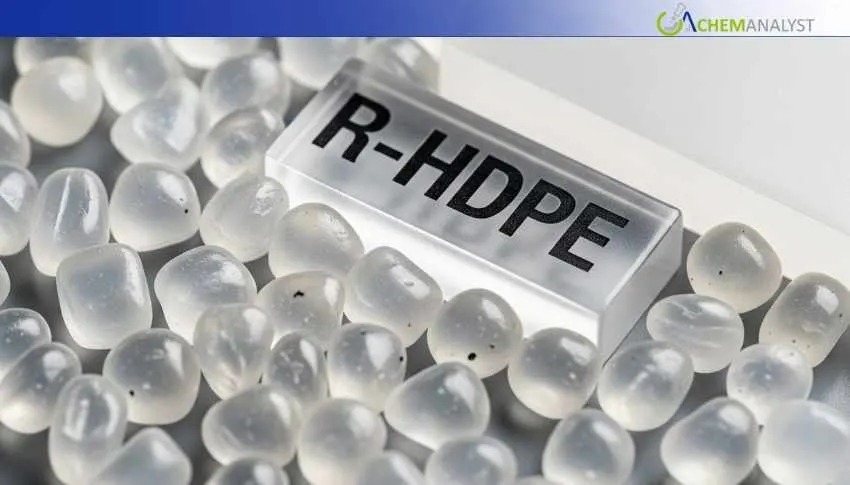Welcome To ChemAnalyst

The US R HDPE market saw a small downturn in August 2025 on a monthly average basis, as some consumer products sectors reduced purchases. Steady buying from packaging and construction industries supported the R HDPE market and prevented a sharper decline. Premium food contact R HDPE grades performed better due to limited high quality feedstock and consistent consumption. While the August monthly average price was marginally lower than July’s, weekly prices within August showed a gradual upward trend. The R HDPE market is expected to improve gradually from September to November, supported by seasonal demand and infrastructure projects, before easing slightly in December as buying patterns normalise and raw material costs remain steady.
Key Highlights
Diving Deep into ChemAnalyst’s Quantitative Analysis
The following graph illustrates weekly average prices of R-HDPE in the US market for August xxxx, showing how steady...
We use cookies to deliver the best possible experience on our website. To learn more, visit our Privacy Policy. By continuing to use this site or by closing this box, you consent to our use of cookies. More info.
